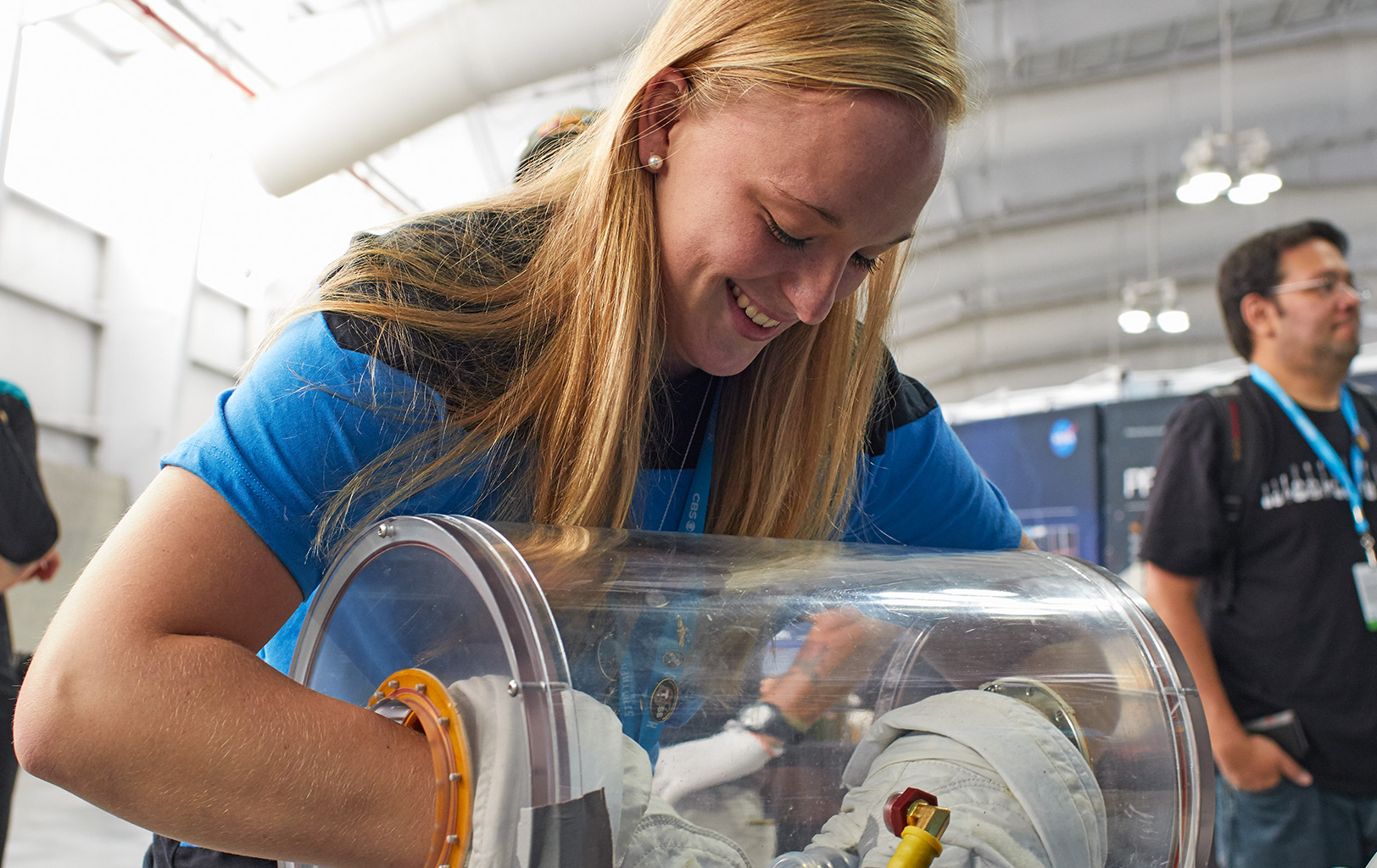Tiny Astroscale satellite will test space junk cleanup tech with magnets
The commercial satellite ELSA-d is in orbit now. Its days are numbered.
Astroscale just launched the first commercial space junk cleanup mission designed to locate and retrieve used satellites and other debris orbiting Earth.
The Japan-based company's End-of-Life Services by Astroscale-demonstration (ELSA-d) mission lifted off from Russia's Baikonur Cosmodrome in Kazakhstan on March 22. It was among the 38 payloads that were carried into space by a Soyuz rocket as part of the first all-commercial rideshare mission for Russian company GK Launch Services.
The ELSA-d mission will test new technology developed by Astroscale, which consists of two satellites stacked together: a 385-lb. (175 kilograms) "servicer" and a 37-lb. (17 kg) "client." The servicer is designed to safely remove debris from orbit, while the client spacecraft will serve during the demonstration as a piece of debris to be cleaned up. Once the two satellites separate, they will perform a cosmic game of cat and mouse over the next six months.
Related: Space junk clean up: 7 wild ways to destroy orbital debris
"I am pleased to confirm that Astroscale's Mission Operations team at the In-Orbit Servicing Centre in Harwell, U.K., has successfully made contact with our ELSA-d spacecraft and established that all initial system checks are satisfactory," Seita Iizuka, ELSA-d project manager, said in a statement from Astroscale. "I congratulate our team and look forward to moving into the first phase of our technical demonstrations."
Using a series of maneuvers, Astroscale will test the satellite's ability to snatch debris and bring it down toward the Earth's atmosphere, where both servicer and debris will burn up. The servicer is equipped with a magnetic docking plate, as well as GPS technology to estimate the exact position and motion of its target. This debris removal demonstration project is the first of its kind by a commercial satellite operator, according to the statement.
During the trial mission, the company will test whether the servicer can catch the client satellite in three separate demonstrations.
Breaking space news, the latest updates on rocket launches, skywatching events and more!
In its first maneuver, the servicer will gently release the test debris then quickly catch it. Next, the servicer will attempt to capture the client as it tumbles through space at up to 18,000 miles per hour.
Finally, Astroscale will simulate an actual mission, in which the servicer will need to search for, locate and capture the client from a distance. If successful, ELSA-d's magnetic capture mechanism could be installed on future satellites launched into space, allowing future servicers to safely remove these spacecraft when they are no longer in service.
"While leading the way in proving our debris removal capabilities, ELSA-d will also propel regulatory developments and advance the business case for end-of-life and active debris removal services," Nobu Okada, Astroscale founder and CEO, said in the statement. "This successful launch brings us closer to realizing our vision of securing the safe and sustainable development of space for the benefit of future generations."
Follow Samantha Mathewson @Sam_Ashley13. Follow us on Twitter @Spacedotcom and on Facebook.

Samantha Mathewson joined Space.com as an intern in the summer of 2016. She received a B.A. in Journalism and Environmental Science at the University of New Haven, in Connecticut. Previously, her work has been published in Nature World News. When not writing or reading about science, Samantha enjoys traveling to new places and taking photos! You can follow her on Twitter @Sam_Ashley13.

